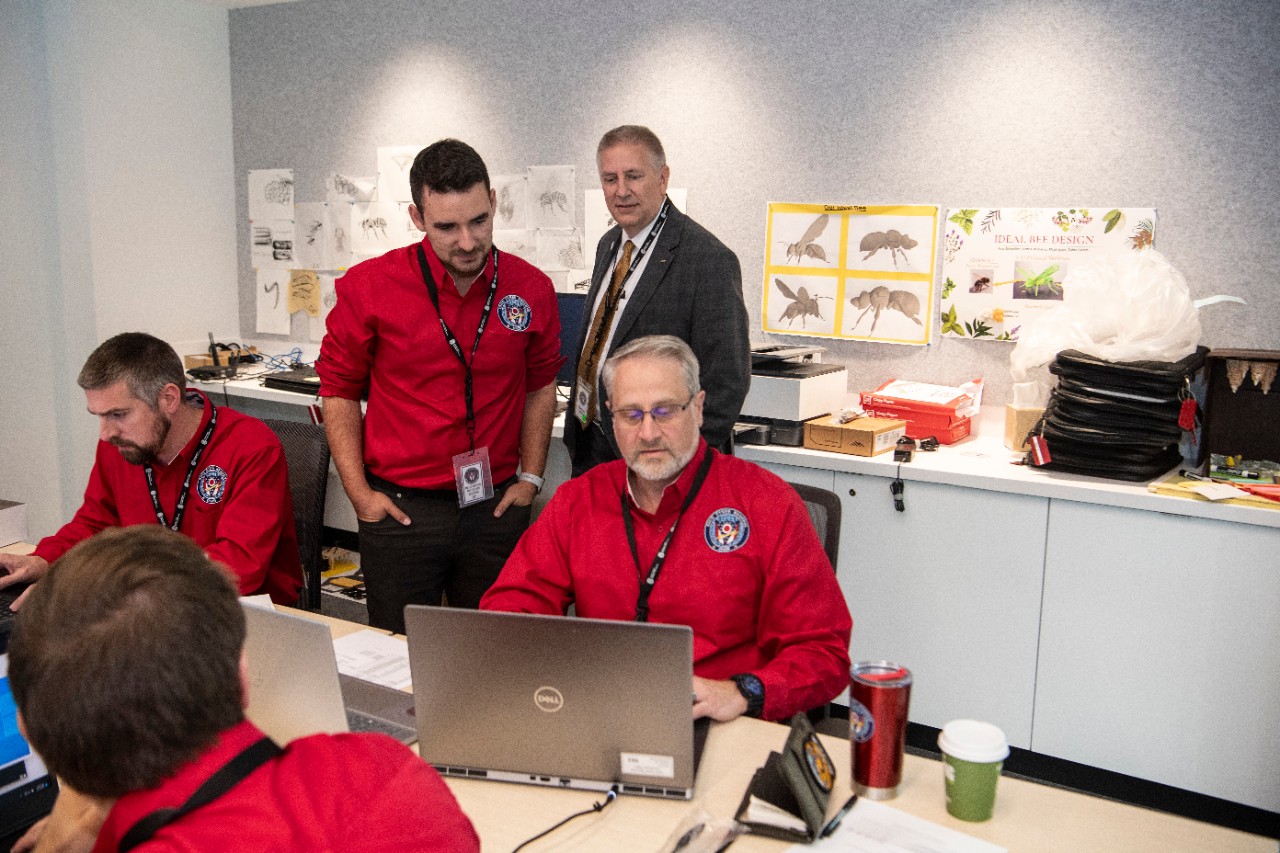
Tanium: UC expert explains cybersecurity risks from Israeli-Hamas conflict
School of Public and International Affairs director says Hamas wants escalation of war
Cybersecurity company Tanium turned to a University of Cincinnati expert for advice about protecting businesses from new digital attacks in the wake of the Israeli-Hamas war.
Hamas launched rocket attacks and armed incursions from the Gaza Strip against Israel this month, killing more than 1,300 people. Israel responded by declaring war against Hamas and launching retaliatory air strikes that have killed 1,500 more people in the Gaza Strip, a Palestinian territory of 2 million people bordering Israel, Egypt and the Mediterranean Sea.
UC College of Arts and Sciences Professor Richard Harknett, director of the School of Public and International Affairs, told Tanium that bad actors could take advantage of the conflict to launch digital attacks on companies or individuals, including new phishing scams that play into people's sympathies surrounding the conflict.
“Modern warfare will always have a cyber component, be it operations against computer networks and their content or cyber manipulation of the information space,” Harknett told Tanium.
Harknett is co-director of UC’s Cyber Range Institute and is chairman of the Center for Cyber Strategy and Policy at UC.
He served as the first scholar-in-residence at the U.S. Cyber Command and National Security Agency in 2016. He is one of the key architects of the policy of “persistent engagement” in cybersecurity that the Biden Administration adopted in its new national cybersecurity strategy, announced in March. This policy anticipates how bad actors will try to exploit vulnerabilities before they occur.

Members of the Ohio Cyber Reserve respond to a simulated attack during a validation exercise at UC Digital Futures. Photo/Joseph Fuqua II/UC
Harknett also shared his expertise this week with 700-WLW's Eddie & Rocky Show, where he put the Hamas attacks and resulting declaration of war by Israel into historical context.
“This will get worse before it gets better,” Harknett told WLW.
Hamas is both a militant movement and a political party in the Gaza Strip. The United States declared Hamas a terror group in 1997 after a series of suicide bombings and rocket attacks.
“For the past 17 years they effectively have been the political authority in the Gaza Strip,” Harknett said.
Israel will be faced with difficult choices given that every military retaliation in the densely populated territory is likely to have high civilian casualties, he said.
“It’s about as big as the I-275 loop around Cincinnati, but it has about seven times Cincinnati’s population,” Harknett said. “So as Israel is trying to hit Hamas targets, Hamas is hiding behind civilian populations.”
This was a massive surprise attack.
Richard Harknett, Director of UC's School of Public and International Affairs
Harknett said the attacks raise questions about Israel's anti-terror intelligence surveillance and whether it missed any warnings.
“This was a massive surprise attack,” he said. “After the dust settles, this will be a major inquiry into how the intelligence services failed to see this coming. To be fair, we don’t know what they were telling their political leaders.”
Israel’s goal, Harknett said, should be to avoid an escalation that could draw other Gulf States into the conflict. Israel was on the cusp of an historic accord with Saudi Arabia that would have isolated Hamas and Iran. According to the Financial Times, that agreement is now in peril.
“Hamas wants Israel to overreact and make this a bigger war,” Harknett said. “Ultimately, Iran is trying to stop peace in this region. You don’t want to give them what they want. The goal for Israel should be finding stability through peace treaties in the Gulf states.”
Complicating matters, Hamas took an estimated 150 civilian and military hostages that it can use to place political pressure on Israel and its allies.
“The biggest concern I have is this will be the first major hostage situation in the social media era,” Harknett said. “I think there will be some really difficult situations where Hamas will leverage these hostages to create pain for Israeli families and put leverage on the Israeli government.”
Listen to the interview with Richard Harknett on 700-WLW.
Featured image at top: Richard Harknett spoke to 700-WLW about the violent conflict in the Middle East. Photo/Lisa Ventre/UC
UC engages the world
In UC's School of Public and International Affairs, students forge big ideas that have a public impact. UC offers undergraduate degrees in political science; international affairs; law & society; and cyberstrategy and policy, along with certificates in international human rights; war, peace and security; legal studies; and cybersecurity. The department also boasts robust graduate programs including a new master's in public administration anchored on a core social justice curriculum.
Learn more about UC's School of Public and International Affairs.
Related Stories
Cincinnati a top destination for street art, museums
February 27, 2026
Discover why Cincinnati is a top destination for street art and museums, ranked among USA Today’s 10Best for 2026. Explore how University of Cincinnati research shows public art boosts community vitality, and find the best things to do near UC’s campus for students and visitors alike.
Intrapreneurship: Strategies to promote internal innovation
February 27, 2026
Intrapreneurship encourages employees at large companies to innovate and test ideas with an entrepreneur’s level of freedom. Learn how to become an intrapreneur in your organization.
'Paradigm-shifting' study confirms effectiveness of long-acting HIV treatment
February 26, 2026
The results of a clinical trial involving the University of Cincinnati, recently published in The New England Journal of Medicine, show people failing HIV treatments with oral medications were able to be treated successfully using injections.
